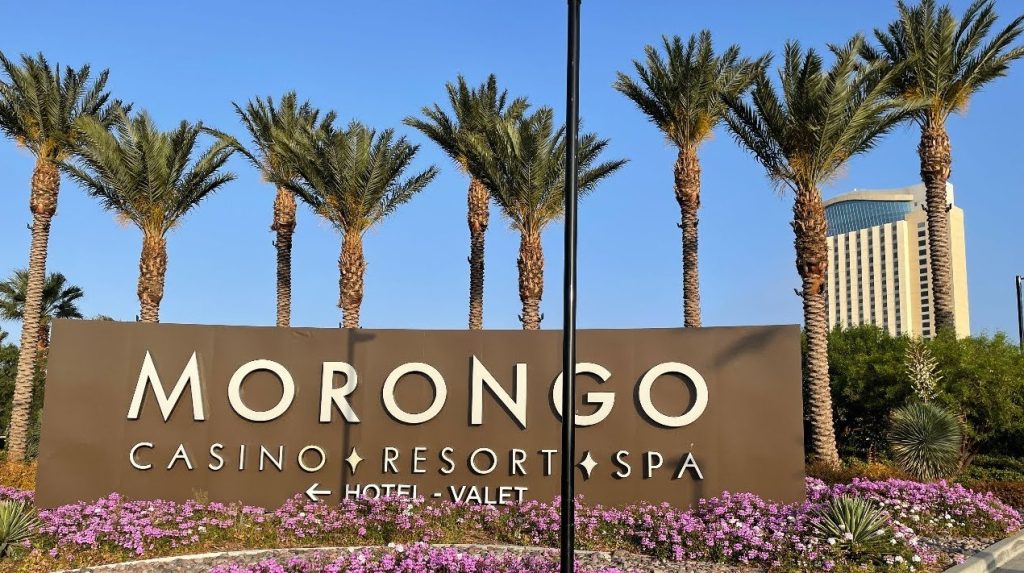Morongo Casino Resort: The Morongo Casino Resort & Spa is not your average commercial casino. Nestled in the foothills of the San Gorgonio and San Jacinto mountains in Cabazon, California, it stands as a powerful symbol of tribal sovereignty, economic self-determination, and cultural preservation. But who really owns this glittering desert oasis?
Morongo Casino Resort: The answer lies in the story of the Morongo Band of Mission Indians, a federally recognized Native American tribe that has carved out a prosperous economic future through the strategic development of their lands, culture, and legal rights.
🧬Morongo Casino Resort: Ownership at a Glance
| Ownership Element | Description |
|---|---|
| Sovereign Owner | Morongo Band of Mission Indians |
| Casino Type | Tribal-Owned (Not privately or publicly held) |
| Operational Structure | Tribal Enterprise under Morongo Tribal Government |
| Governing Body | Elected Morongo Tribal Council |
| Location | Tribal land in Cabazon, Riverside County, California |
| Legal Authority | Operates under Indian Gaming Regulatory Act (IGRA), CA compact |
🏛️ The Morongo Band of Mission Indians: Stewards of the Land
Morongo Casino Resort: The Morongo Band of Mission Indians are the legal and rightful owners of the Morongo Casino Resort & Spa. The tribe’s reservation encompasses over 35,000 acres, with the casino situated near a major highway artery, Interstate 10, which connects Los Angeles to Palm Springs.
Morongo Casino Resort: Founded in 1865, the Morongo Band has a long history of fighting for sovereignty, land rights, and economic independence. In the early 2000s, they invested heavily in upgrading their casino operations, which transformed the former bingo hall into one of Southern California’s premier gaming and entertainment destinations.
⚖️ Morongo Casino Resort: Sovereignty and Self-Governance
Morongo Casino Resort: Unlike commercial casinos, tribal casinos like Morongo are sovereign operations. This means they are not governed by state law in the same way as other businesses. Instead, they operate under:
- Federal Indian Law
- The Indian Gaming Regulatory Act (IGRA) of 1988
- State-Tribal Gaming Compacts
This legal framework gives the tribe full control over the casino’s management, revenue, and reinvestment strategies. While they cooperate with federal and state gaming commissions, ultimate authority resides with the Tribal Council.
🧩 Organizational Structure
| Component | Description |
|---|---|
| Morongo Tribal Council | Elected body responsible for governance, policy, and casino oversight |
| Tribal Gaming Authority | Ensures compliance with gaming regulations and tribal codes |
| Enterprise Management | Professional teams hired or appointed by the tribe to operate daily affairs |
| Revenue Allocation | Revenues are used for tribal services, infrastructure, and reinvestment |
This layered approach ensures that while the casino operates with professional standards, it always aligns with the values, needs, and long-term vision of the tribe.
💰 Economic Impact and Use of Profits
Unlike commercial casinos, where profits benefit shareholders, Morongo Casino’s earnings are reinvested into the tribal community.
How Morongo Uses Casino Revenue:
| Area of Investment | Examples |
|---|---|
| Healthcare | Tribal clinics, medical services, elder care programs |
| Education | Scholarships, school funding, early childhood programs |
| Housing & Infrastructure | Community housing, water systems, roads, public buildings |
| Cultural Preservation | Language revitalization, tribal history programs, traditional arts |
| Employment | Jobs for tribal members and local residents (casino employs 2,000+) |
📈 Why This Model Matters
The Morongo Band’s ownership of their casino is part of a broader national trend: economic empowerment through tribal enterprise. Casinos like Morongo have become economic engines not just for their tribes but for the surrounding communities, providing employment, contracts, and tourism dollars.
But more importantly, they represent the restoration of control over lands and destinies that were taken or diminished by colonization and decades of marginalization.
🧠 Key Takeaways
- Morongo Casino Resort & Spa is 100% owned by the Morongo Band of Mission Indians.
- It is managed as a tribal enterprise, not a commercial or corporate entity.
- The profits are used to support tribal services, community development, and cultural preservation.
- The casino operates under a framework of federal law and tribal sovereignty, with limited state oversight.
🔮 Final Thoughts
In an industry dominated by flashy brands and international corporations, Morongo Casino stands apart—not just because of its luxury or entertainment value, but because of who it belongs to. Every spin of the roulette wheel, every show ticket, and every meal served supports a sovereign people committed to building a future on their own terms.
The Morongo Band’s ownership of the casino is not just a business decision. It’s a profound expression of cultural resilience, economic vision, and tribal self-determination.

